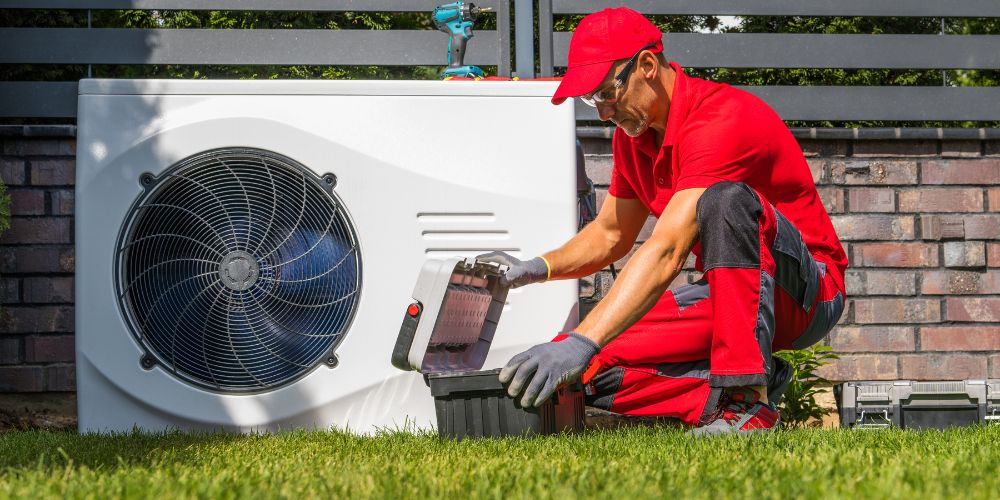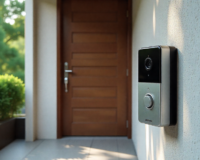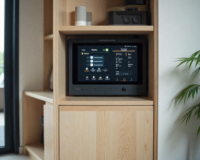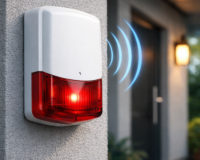In an era where sustainability and energy efficiency are at the forefront of global conversations, the transition to electric heating and cooling systems emerges as a pivotal step towards a greener future. The traditional reliance on fossil fuels for temperature control not only contributes significantly to environmental degradation but also poses health risks and economic burdens. However, the adoption of electric alternatives promises multifaceted advantages, ranging from reduced carbon footprints to enhanced cost-effectiveness and indoor air quality. In this comprehensive exploration, we delve into the myriad benefits of converting heating and cooling systems to electric alternatives, elucidating why this shift is imperative for individuals, communities, and the planet at large.
Read more: Choose The Right Heating and Cooling Systems for Melbourne’s Climate
What are Electric Heating and Cooling Systems (HVAC)?
Electric heating and cooling systems, also known as electric HVAC (Heating, Ventilation, and Air Conditioning) systems, are comprehensive climate control solutions that utilize electricity as the primary energy source for both heating and cooling purposes within residential, commercial, and industrial settings. These systems integrate various components and technologies to regulate indoor temperatures, improve air quality, and enhance overall comfort while minimizing environmental impact and energy consumption.
Electric heating and cooling systems encompass a range of equipment and configurations, including:
- Electric Heat Pumps: Heat pumps are versatile HVAC systems that can provide both heating and cooling by transferring heat between indoor and outdoor environments. Air-source heat pumps extract heat from the outdoor air during the heating season and transfer it indoors, while ground-source (geothermal) heat pumps extract heat from the ground or water source. Heat pumps operate efficiently in moderate climates and can achieve significant energy savings compared to traditional heating and cooling systems.
- Electric Furnaces: Electric furnaces use electric resistance heating elements to generate heat, which is then distributed throughout the building via a forced-air system. Electric furnaces are commonly used in conjunction with central air conditioning systems to provide year-round climate control. They are simple in design, easy to install, and suitable for both residential and commercial applications.
- Electric Air Conditioners: Electric air conditioning systems use electricity to remove heat from indoor air and expel it outdoors, thereby cooling the indoor environment. These systems typically consist of an outdoor condenser unit and an indoor evaporator unit connected by refrigerant lines. Electric air conditioners are available in various configurations, including central air conditioning systems for whole-house cooling and ductless mini-split systems for zone-specific cooling.
- Electric Boilers: Electric boilers are heating devices that use electricity to heat water or generate steam for space heating or domestic hot water purposes. Electric boilers are compact, quiet, and efficient, making them suitable for homes or buildings where gas or oil-fired boilers are impractical or unavailable. Electric boilers can be used in conjunction with radiant heating systems, underfloor heating systems, or as backup heating sources.
- Electric Heat Pump Water Heaters: Heat pump water heaters use electricity to transfer heat from the surrounding air to heat water for domestic use. These systems operate efficiently and can significantly reduce water heating costs compared to conventional electric resistance water heaters.
- Electric Radiant Heating: Electric radiant heating systems use electric heating elements installed beneath floors, walls, or ceilings to provide comfortable, uniform heat. Radiant heating systems are energy-efficient, silent, and ideal for heating specific areas or individual rooms.
Electric heating and cooling systems offer several advantages, including energy efficiency, precise temperature control, quiet operation, and compatibility with renewable energy sources such as solar power. Additionally, these systems contribute to improved indoor air quality and occupant comfort while reducing greenhouse gas emissions and reliance on fossil fuels. As the demand for sustainable HVAC solutions continues to grow, electric heating and cooling systems are poised to play a vital role in meeting the climate control needs of modern buildings and communities.
Why Consider an All-Electric HVAC?
Considering an all-electric HVAC system entails a comprehensive evaluation of its numerous advantages, which extend far beyond conventional heating and cooling methods. Here are compelling reasons to contemplate the adoption of an all-electric HVAC system:
Environmental Sustainability
The foremost advantage of transitioning to electric heating and cooling systems lies in their inherently cleaner and more sustainable nature. Unlike fossil fuel-based counterparts, electric systems operate without emitting harmful pollutants such as carbon dioxide (CO2), nitrogen oxides (NOx), and particulate matter, which are primary contributors to air pollution and climate change. By eliminating these emissions, electric systems play a crucial role in mitigating the adverse impacts of global warming, reducing greenhouse gas emissions, and preserving the integrity of ecosystems.
Moreover, the integration of renewable energy sources such as solar and wind power further enhances the environmental credentials of electric heating and cooling. By harnessing clean energy sources to generate electricity, homeowners can significantly diminish their reliance on non-renewable resources, thereby fostering a more sustainable energy landscape and advancing the transition towards a low-carbon economy.
Energy Efficiency
Electric heating and cooling systems boast superior energy efficiency compared to their conventional counterparts, translating into substantial reductions in energy consumption and operational costs. Unlike combustion-based systems, which incur energy losses through heat dissipation and exhaust emissions, electric systems convert nearly all input energy into usable heat or cool air, minimizing wastage and optimizing performance.
Furthermore, advancements in technology, such as variable-speed compressors and smart thermostats, enable electric systems to adapt their output levels in response to changing environmental conditions and user preferences. This dynamic control mechanism not only ensures precise temperature regulation but also facilitates energy conservation by preventing unnecessary energy expenditure during periods of low demand.
Cost Savings
Beyond environmental considerations, converting to electric heating and cooling systems yields tangible economic benefits for homeowners and businesses alike. While the upfront costs of installation may seem daunting, the long-term savings accrued through reduced energy bills and maintenance expenses far outweigh the initial investment. Electric systems typically exhibit lower lifecycle costs due to their minimal maintenance requirements, prolonged durability, and higher energy efficiency ratings, resulting in significant savings over the system’s lifespan.
Moreover, the volatility of fossil fuel prices and the uncertainty surrounding future supply chains underscore the financial prudence of transitioning to electric alternatives. By insulating themselves from the fluctuations of global energy markets, consumers can achieve greater financial stability and predictability, thereby safeguarding their budgets against unforeseen expenses and economic downturns.
Improved Indoor Air Quality
One often overlooked yet critical advantage of electric heating and cooling systems lies in their capacity to enhance indoor air quality (IAQ) and promote occupant health and comfort. Unlike combustion-based systems, which release pollutants such as carbon monoxide (CO) and volatile organic compounds (VOCs) into the indoor environment, electric systems operate cleanly and emit noxious gases or particulate matter. Consequently, occupants are spared the respiratory ailments and allergic reactions associated with poor IAQ, fostering a healthier and more conducive living or working environment.
Furthermore, electric systems offer greater flexibility in terms of air filtration and purification, allowing users to integrate advanced filtration technologies such as HEPA filters and UV-C sterilization systems to eliminate airborne contaminants and allergens effectively. This proactive approach to IAQ management not only safeguards occupants’ health but also enhances overall comfort and productivity, thereby underscoring the holistic benefits of electric heating and cooling solutions.
Technological Innovation and Integration
The ongoing evolution of electric heating and cooling technologies continues to drive innovation and unlock new possibilities in energy management and building automation. From the proliferation of smart sensors and IoT-enabled devices to the advent of grid-responsive controls and demand-side management solutions, electric systems offer unprecedented levels of connectivity and interoperability, enabling seamless integration with other smart home technologies and renewable energy systems.
Moreover, the decentralization of energy production and distribution facilitated by electric systems empowers consumers to become active participants in the energy transition, enabling them to generate, store, and share electricity within localized microgrids or virtual power plants. This democratization of energy resources not only enhances energy resilience and reliability but also fosters community engagement and collective action towards a more sustainable energy future.
Future-Proofing
With the global transition towards clean energy and decarbonization gaining momentum, investing in an all-electric HVAC system represents a forward-thinking approach to future-proofing properties and infrastructure. By aligning with evolving regulatory requirements and market trends, users can position themselves at the forefront of sustainability and innovation, reaping the benefits of reduced environmental impact, enhanced energy efficiency, and increased property value over time.
Conclusion
As the imperatives of climate action and energy transition loom large on the global agenda, the conversion to electric heating and cooling systems emerges as a pivotal strategy for achieving environmental, economic, and social sustainability. By harnessing the inherent advantages of electric technologies—such as environmental cleanliness, energy efficiency, cost savings, IAQ improvement, and technological innovation—individuals and communities can unlock a multitude of benefits while contributing to the collective effort to combat climate change and build a more resilient and equitable energy system for future generations. Thus, the imperative to embrace electric heating and cooling solutions transcends mere utility; it represents a transformative opportunity to redefine our relationship with energy and forge a path towards a brighter, cleaner, and more sustainable future for all.
Read more:






